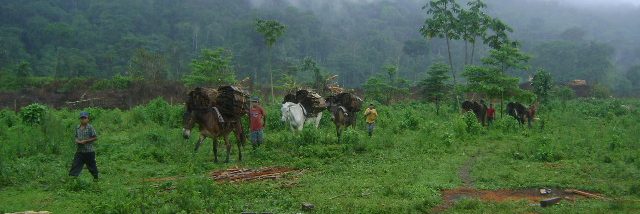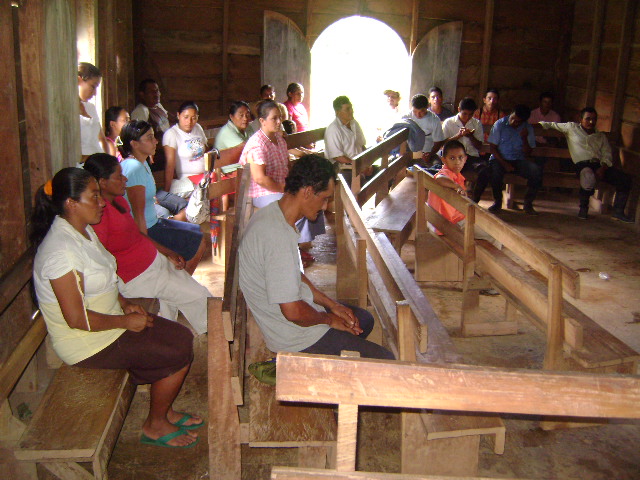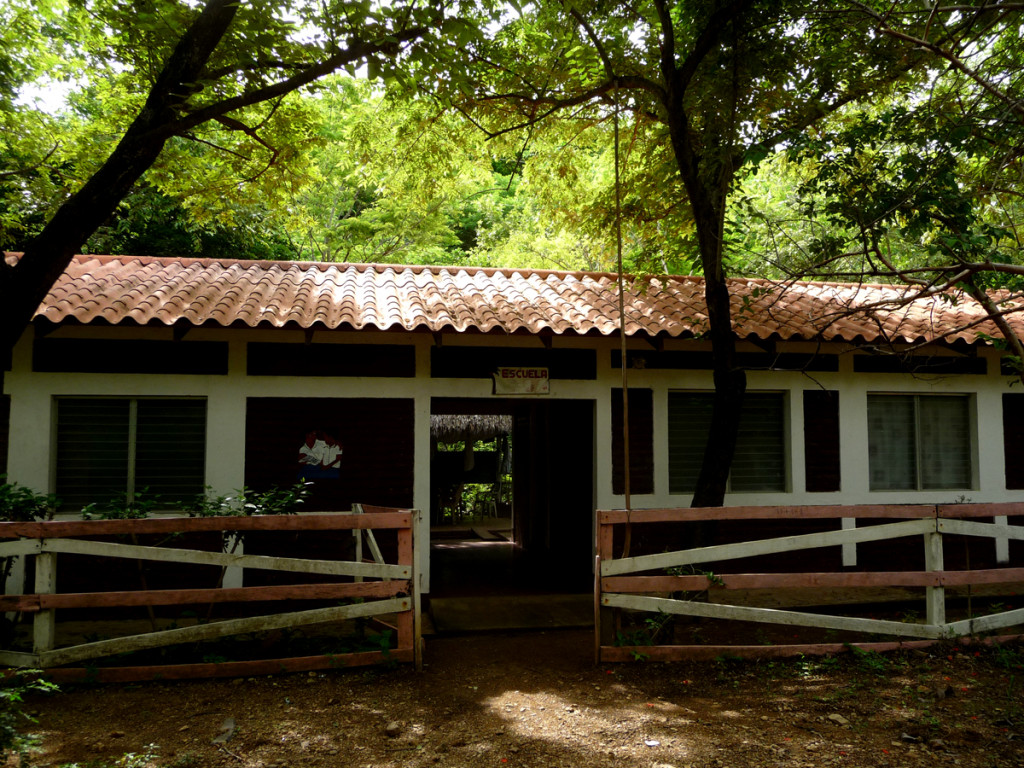Buffer zone in the Bosawas Reserve, Municipio de Siuna, Managua, Nicaragua
In collaboration with

February 2010 – February 2012.
We promote a collective learning process that leads communities to have a life and environment plan that results from an educational approach based on the environment.
Objectives
- Create a community educational program to change production processes, stop deforestation and improve intercultural coexistence between mestizo communities.
Beneficiaries
2,900 direct

On the ground
There is soil erosion due to inappropriate livestock and agricultural processes that affect the water cycle. The population is impoverished and illiterate.
The Bosawas Reserve in Nicaragua was declared a United Nations Biosphere Reserve because of its biodiversity as well as its importance as a multicultural habitat. 42% of the population is of mixed race, 8% has African roots, 40% is Miskito (indigenous) and 8% is Mayangna (indigenous). The latter can be found primarily in the so-called “buffer zone” of the reserve; in other words, the parts neighbouring the protected areas of the reserve.
The buffer zone is currently facing an intense colonisation process by the rural mixed race population, which represents a serious threat to the ecosystem because of livestock and agriculture production practices that cause progressive deforestation due to methods that drain the soil and cause erosion. Eroded soil cannot retain humidity, leading to drought and the consequent impact on harvests.

In addition to the environmental and cultural features of the buffer zone, the living conditions of its inhabitants are very poor, with almost no health services whatsoever. No more than 8.6% has drinking water facilities and only 10% of houses in the area has mains water. Furthermore, half of the population is illiterate, with only 22.7% having received formal education.
Recovering and handing down traditional Mayangna values
One of the indigenous peoples, the Mayangna, has ancestral values and extensive knowledge of environmental sustainability and farming techniques. Educación Sin Fronteras [education without borders] has developed a project that supports alternative forms of community education in accordance with the specific context of the area, and is based on recovering and conveying this ancestral knowledge. As such, the educational process that is being conducted in the 16 rural mixed race communities in the buffer zone seeks to bring about significant changes in production systems and intercultural coexistence so as to make better use of existing potential.
In detail
In order to put a stop to deforestation in the Bosawas Reserve in Nicaragua, an education plan comprising sustainable agricultural and livestock practices must be developed that also promotes intercultural relations and gender rights. The revival of the values and knowledge of the indigenous Mayangna community to contribute to the recoivery of the natural water cycle forms an essential part of the project.
The project has been established in accordance with the rights, approved by the United Nations Organisation (UNO), of the indigenous peoples to the use of their natural resources, to education in their own languages and to the promotion of their cultures, and fosters a collective learning process that encourages the communities to design a life and environment plan based on cultural exchange and attitudes acquired during the environment-related education process.
The project is based on training processes that will target the 32 leaders, 40 community educators and 320 local development managers in order to encompass the community as a whole.


